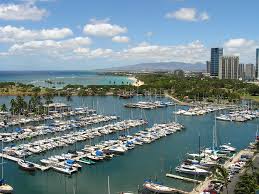harbor
英 [ˈhɑr·bər]
美 [ˈhɑr·bər]
- vt. 庇护;怀有
- n. 海港;避难所
- vi. 居住,生存;入港停泊;躲藏
- n. (Harbor)人名;(英)哈伯
星级词汇:

记忆方法
将“harbor”与“bare boat”联想起来,想象一艘空船(bare boat)停靠在港口(harbor),这样的图像可以帮助记忆“harbor”意为港口。
以上内容由AI生成, 仅供参考和借鉴
中文词源
harbor 港口
har-,军队,队伍,词源同here,harry,-bor,保护,庇护所,词源同bury.引申词义船只庇护地,避难所,后用于指港口。
英语词源
- harbor (n.)
- "lodging for ships; sheltered recess in a coastline," early 12c., a specialized sense of Middle English herberwe "temporary dwelling place, quarters, lodgings; an inn; the camp of an army in the field," probably from Old English here-beorg (West Saxon), *here-berg (Anglian) "lodgings, quarters," from Proto-Germanic compound *harja-bergaz "shelter, lodgings," from *heri "army, host" (see harry (v.)) + *burzjan- "protection, shelter" (see bury (v.)). Perhaps modeled on Old Norse herbergi "room, lodgings, quarters."
- harbor (v.)
- Old English herebeorgian "take up quarters, lodge, shelter oneself" (cognate with Old Norse herbergja, Old High German heribergon, Middle Dutch herbergen), verbal formation from here-beorg "lodgings, quarters" (see harbor (n.)). Meaning "give shelter to, protect" is from mid-14c. Figuratively, of thoughts, etc., from late 14c. Related: Harbored; harboring.
权威例句
- 1. He had jumped overboard in New York harbor and swum to shore.
- 他在纽约港跳下船,游上了岸。
- 2. The Harbor was replete with boats.
- 港口里满是船只。
- 3. The harbor lies to the south of the city.
- 港口在城市的南边.
- 4. At that time, our ship was tied up at this harbor.
- 当时我们的船停靠在这个港口.
- 5. The attack will take off from our position near the harbor.
- 此次攻击将从我们在港口附近的阵地上发动.
